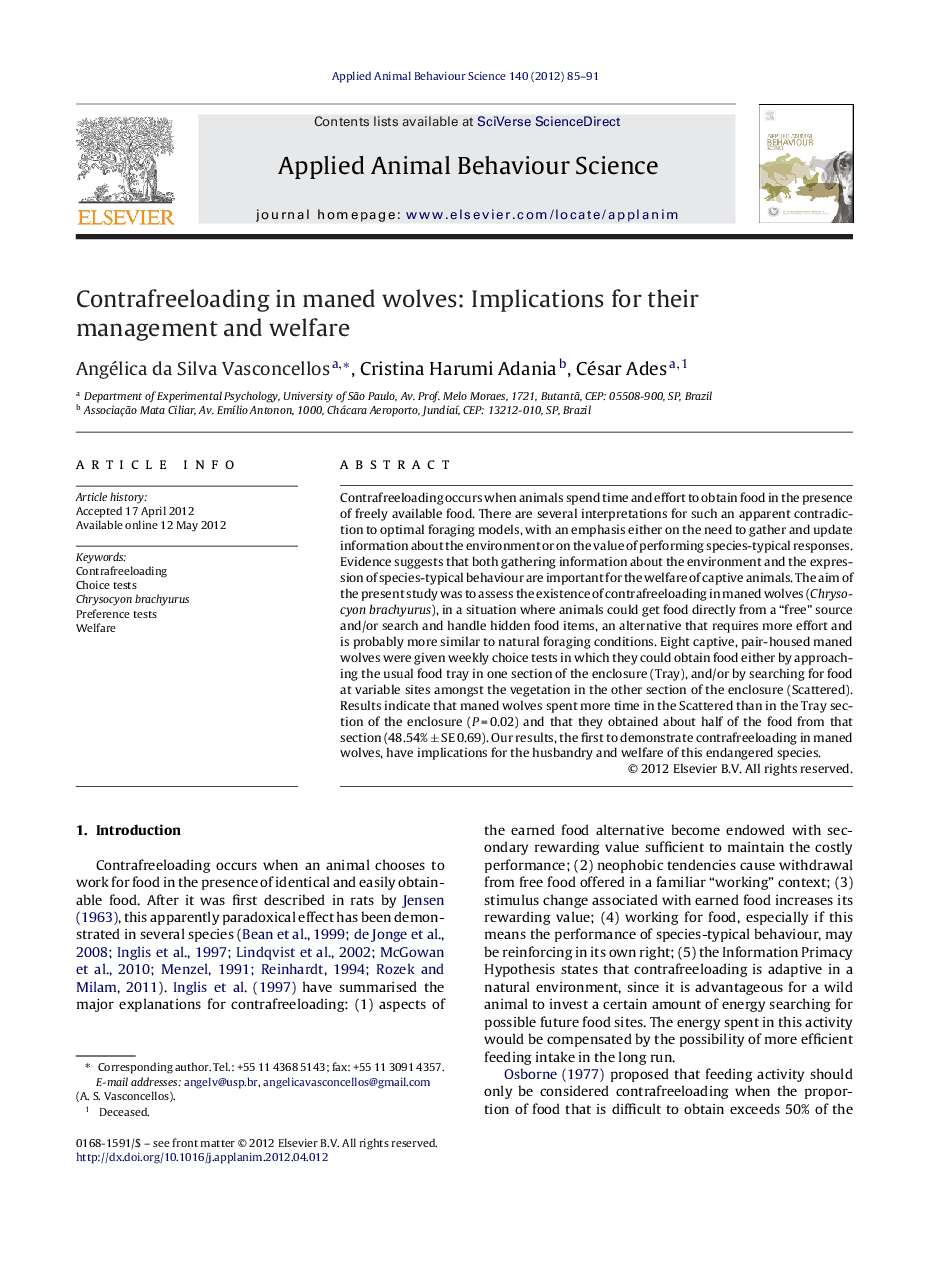| Article ID | Journal | Published Year | Pages | File Type |
|---|---|---|---|---|
| 4522916 | Applied Animal Behaviour Science | 2012 | 7 Pages |
Contrafreeloading occurs when animals spend time and effort to obtain food in the presence of freely available food. There are several interpretations for such an apparent contradiction to optimal foraging models, with an emphasis either on the need to gather and update information about the environment or on the value of performing species-typical responses. Evidence suggests that both gathering information about the environment and the expression of species-typical behaviour are important for the welfare of captive animals. The aim of the present study was to assess the existence of contrafreeloading in maned wolves (Chrysocyon brachyurus), in a situation where animals could get food directly from a “free” source and/or search and handle hidden food items, an alternative that requires more effort and is probably more similar to natural foraging conditions. Eight captive, pair-housed maned wolves were given weekly choice tests in which they could obtain food either by approaching the usual food tray in one section of the enclosure (Tray), and/or by searching for food at variable sites amongst the vegetation in the other section of the enclosure (Scattered). Results indicate that maned wolves spent more time in the Scattered than in the Tray section of the enclosure (P = 0.02) and that they obtained about half of the food from that section (48.54% ± SE 0.69). Our results, the first to demonstrate contrafreeloading in maned wolves, have implications for the husbandry and welfare of this endangered species.
